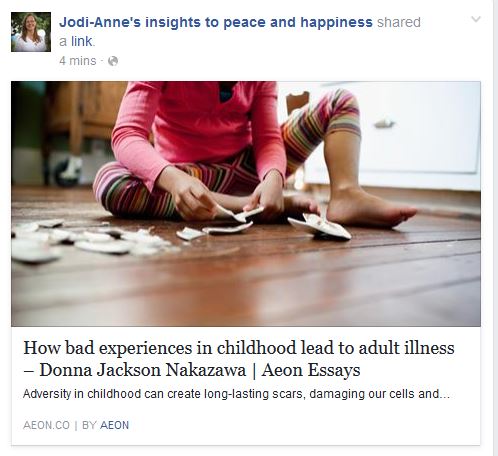In this 22 minute TED talk Stephen Ildari explains that depression largely results from us living busy, stressful lives that our bodies are not designed for. Our DNA and bodies are basically still geared for a hunter gatherer lifestyle, where there may be moments of stress such as when you are facing a bear or tiger, but then once you have run away or fought the predator, the stress reduces and your body gets to relax.
For most of us today our lives are constantly stressful and busy, resulting in a prolonged stress response and being in fight or flight much of the time. This is detrimental to the body and over time results in depression. Our bodies simply have not adapted to this massive change of lifestyle yet, and the result is the epidemic in depression. One in nine Americans over the age of 12 is taking an anti-depressant.
Stephe Ildari advocates for a change in lifestyle to reduce stress, improve your body’s neurochemistry and decrease depression. He outlines a 6 step Therapeutic Lifestyle Change (TLC) program to beat depression without medication.
His research has demonstrated that the TLC program is an effective treatment for depression, with over 70% of patients experiencing a favorable response, as measured by symptom reduction of at least 50%. That is a lot of relief!!!!! The 6 steps are:
- Exercise – he claims exercise is more effective than any pill. Just brisk walking for 30 minutes, 3 times a week can help a lot.
- Omega 3 Fatty Acids – our bodies can’t make Omega 3 and 6, we need to get them from our diet. He recommends a supplement that gives you a 1000 mg of EPA and 500 mg of DHA per day.
- Sunlight – he recommends that people get at least 30 minutes of bright light exposure per day.
- Healthy Sleep – at least 8 hours sleep a night is needed
- Anti-ruminative activity – stop yourself ruminating on negative thoughts and feelings. Focus instead on doing something pleasant, calling a friend, exercise or journalling.
- Social connection – resist the urge to isolate, reach out and connect to people, socialise and you will feel better.
Doing the above will help your body to relax and return to a greater state of peace and happiness. To learn more about Stephen Ildari’s program visit his Therapeutic Lifestyle Change website.
If you find this information useful consider donating to support Jodi-Anne to share more insights on obtaining peace and happiness.

